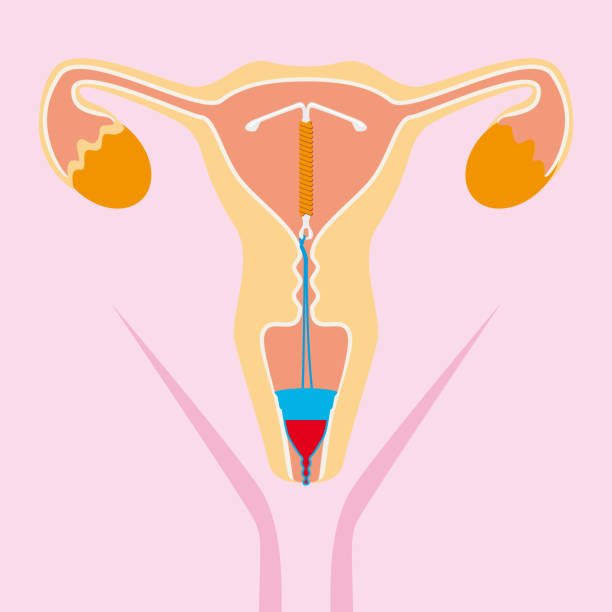Mirena, a popular form of intrauterine contraceptive device (IUD), is known for its effectiveness in preventing pregnancy and providing long-term contraception. However, some users may experience unexpected changes in their menstrual cycles, including sudden heavy periods. In this article, we delve into the reasons behind this phenomenon and offer guidance on managing it effectively.
Introduction
Mirena is a type of hormonal intrauterine device (IUD) that releases levonorgestrel, a synthetic progestin, into the uterus. It works primarily by thickening the cervical mucus, inhibiting sperm movement, and thinning the uterine lining, thereby preventing fertilization and altering the menstrual cycle.
A heavy period, also known as menorrhagia, is characterized by excessive menstrual bleeding that lasts longer than usual and may be accompanied by severe cramping and discomfort. At the same time, some variation in menstrual flow is normal, and sudden and significant changes in bleeding patterns can be concerning for individuals using Mirena.
Understanding Mirena
Mirena functions as a highly effective contraceptive method, with a success rate of over 99%. Once inserted into the uterus by a healthcare provider, Mirena can protect against pregnancy for up to five years. It is particularly favored by individuals seeking a low-maintenance birth control option with minimal daily requirements.
Despite its efficacy, Mirena is not without side effects. Common side effects include irregular bleeding, especially during the initial months after insertion, as well as changes in menstrual patterns. While some users may experience lighter periods or even complete cessation of menstruation, others may notice an increase in bleeding or unexpected changes in their menstrual flow.
Normal Periods with Mirena
In the first few months after Mirena insertion, it is not uncommon for individuals to experience irregular spotting or bleeding as their bodies adjust to the presence of the device. This is considered a normal part of the adaptation process and typically resolves on its own over time. Additionally, many users report lighter periods or even no periods at all while using Mirena, which is one of its appealing features for those seeking long-term contraception.
Causes of Sudden Heavy Periods with Mirena
Despite the overall effectiveness of Mirena, some users may experience sudden heavy periods that deviate from their usual menstrual patterns. Several factors may contribute to this phenomenon, including hormonal fluctuations, inflammation or infection, and underlying health conditions.
Hormonal Fluctuations: Mirena releases levonorgestrel continuously into the uterus, which can affect hormonal balance and menstrual regularity. Fluctuations in hormone levels may lead to changes in the thickness of the uterine lining, potentially resulting in heavier periods.
Inflammation or Infection: In rare cases, the presence of Mirena may cause inflammation or infection in the uterus or cervix, leading to increased menstrual bleeding. This is more likely to occur shortly after insertion or if the device becomes displaced over time.
Other Underlying Health Conditions: Certain medical conditions, such as uterine fibroids or endometriosis, can also contribute to heavy menstrual bleeding. While Mirena may help alleviate symptoms associated with these conditions for some individuals, others may experience worsening symptoms or irregular bleeding.
Signs and Symptoms
Identifying a sudden heavy period with Mirena can be challenging, especially for individuals who have experienced changes in their menstrual patterns since having the device inserted. However, there are several signs and symptoms to watch out for, including:
Increased Blood Flow: Noticeably heavier bleeding than usual, requiring more frequent changes of menstrual products.
Prolonged Duration: Menstrual periods lasting longer than usual, extending beyond the typical timeframe for menstruation.
Severe Cramping: Intense pelvic pain or cramping that accompanies heavy bleeding, potentially interfering with daily activities.
It is essential to differentiate between normal variations in menstrual flow and sudden changes that may indicate a problem with Mirena or an underlying health issue.
When to Seek Medical Help
While occasional irregular bleeding is common, especially during the initial months after Mirena insertion, persistent or severe changes in menstrual patterns should prompt further evaluation by a healthcare provider. It is essential to pay attention to red flags such as:
Excessive Blood Loss: Heavy bleeding that interferes with daily activities or requires frequent changes of menstrual products.
Severe Pain: Intense pelvic pain or cramping that is unresponsive to over-the-counter pain medications.
Signs of Infection: Fever, chills, or abnormal vaginal discharge accompanied by foul odor or discomfort.
Suppose you experience any of these symptoms or are concerned about changes in your menstrual cycle while using Mirena. In that case, it is advisable to consult your healthcare provider for a thorough evaluation and appropriate management.
Treatment Options
Managing sudden heavy periods with Mirena depends on the underlying cause and severity of symptoms. Your healthcare provider may recommend various treatment options, including:
Hormonal Therapy: Adjusting hormone levels with supplemental medications or oral contraceptives to regulate menstrual flow.





